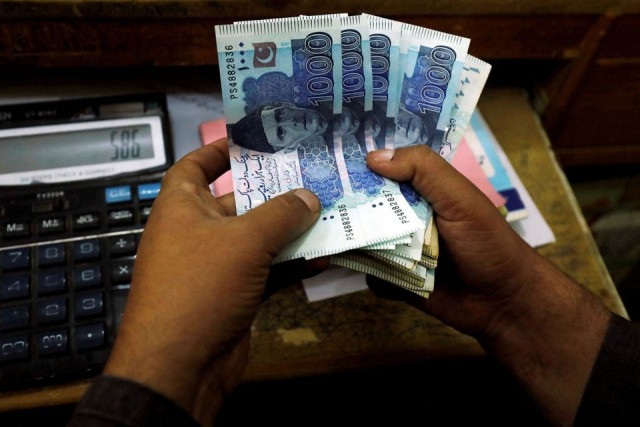PA passes Rs3.8tr budget amid opposition criticism
Finance minister defends allocations

The provincial government passed 41 grants for demands totalling approximately Rs3.80 trillion, rejecting all cut motions proposed by the Opposition, who questioned the government’s policies and the performance of various institutions, suggesting a reduction in budget allocations.
The grants were presented after a four-day general discussion on the annual budget for 2024-25, concluded by Provincial Finance Minister Mian Mujtaba Shujaur Rehman. He dismissed the Opposition’s proposals as immature and aimed solely at point-scoring.
The Opposition’s cut motions targeted sectors such as provincial excise, irrigation, agriculture, education, and police, criticising what they called flawed government policies.
Despite their efforts, these motions were overwhelmingly rejected by a majority vote, maintaining the proposed allocations for these sectors.
The allocation of over Rs1.87 trillion for the police department sparked significant backlash from the Opposition.
They accused the police of political bias, registering false FIRs against PTI members, and failing to address crime effectively.
Opposition lawmaker Shaikh Imtiaz specifically criticised the Rs4 billion allocation for police training, suggesting that moral training was more necessary for the force.
Imtiaz further questioned the Rs3 billion allocated for Safe City cameras, arguing that these resources are not being used effectively to prevent the registration of false cases.
The grant for education, amounting to Rs1.19 trillion, was passed despite strong opposition. Critics highlighted the disparity between education standards for affluent families and those for the poor.
They called for significant improvements in government schools to provide quality education to underprivileged children.
In response, Education Minister Rana Sikandar Hayat acknowledged the challenges but emphasized the ongoing efforts to improve education standards.
He mentioned the appointment of 35,000 new school teachers, reducing the shortage from 118,000 to 58,000, and promised that efforts would continue to elevate the quality of education to “Oxford level.”
In his concluding speech, Finance Minister Mian Mujtaba Shujaur Rehman criticised the Opposition for not contributing constructive proposals and for creating chaos in the House.
He emphasised the government’s commitment to reducing inflation, providing quality education and healthcare, maintaining law and order, and ensuring economic stability.
Rehman highlighted the government’s success in reducing inflation to 11.8% and promised further efforts to lower it.
He also announced plans to provide solar systems to consumers using 300 units of electricity, showcasing the government’s focus on sustainable energy solutions.
The session, presided over by Punjab Assembly Speaker Malik Muhammad Ahmad Khan, concluded with the completion of the assembly’s agenda.
Speaker Khan then adjourned the House until June 26 at 2 pm.
The passage of the Rs3.80 trillion budget amidst strong opposition highlights the ongoing political dynamics within the provincial assembly.
While the government maintains its stance on budget allocations and policy direction, the Opposition continues to challenge the efficacy and fairness of these decisions.
The debate underscores the broader challenges facing the province, from law enforcement and education to economic stability and public service delivery.
As the assembly reconvenes, these issues are likely to remain at the forefront of legislative discussions, shaping the future policy landscape of the province.




1724912122-0/Untitled-design-(1)1724912122-0-208x130.webp)














COMMENTS
Comments are moderated and generally will be posted if they are on-topic and not abusive.
For more information, please see our Comments FAQ